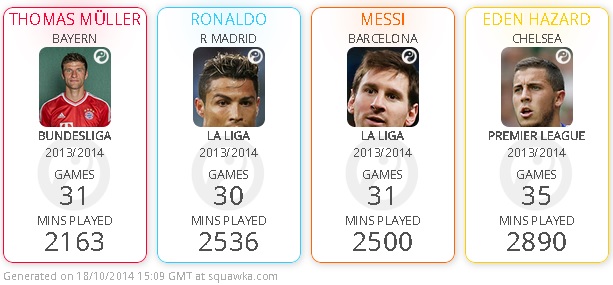The statistical revolution has not only been triggered but introduced to all major clubs in European football.
Strange or not, most of the companies and researchers have their roots in American sports.
FIFA didn’t archive assists until 1994, but now we’ve got services like Prozone or Opta that are tracking more data than you can imagine! We’ll focus on discussing how all this started and what to expect in the near future.
Moneyball’s debut in football

Do you remember the last few minutes of the Moneyball movie?
Oakland’s GM Billy Beane was offered a $12,5 million deal to sign for Boston Red Sox. It was more than a GM in baseball had ever been paid at the time. He turned down that offer. But that’s not really the point though.
The chairman, John W. Henry, who made the offer, is the same guy who bought Liverpool back in 2010!
They obviously tried to implement the Moneyball concept in football. Why? They immediately installed Damien Comolli as Director of Football. He’s been known for using unconventional metrics trying to discover underrated talents.
Comolli was the first person in European football to contact Moneyball guru Billy Bean. They soon became friends: “The world is so small now and myself and Damien have become close friends. I root for Damien, I root for Liverpool owner John Henry,” Beane said to The Daily Mirror.
Opta’s suggestion for England’s National Team
In 2010 Opta have come up with a statistical analysis of players’ current form and they found a few intriguing candidates for selection at the time. Here’s the headline from The Guardian which points out the story:

According to their suggestion, Andy Carroll would have taken the No9 shirt with Sunderland’s on-loan Manchester United forward at the time Danny Welbeck as his foil. Full article here.
Now, after a few years, we can better interpret their predictions. It is clear that one of the two suggested didn’t rise to their expectations. However, the other one is currently a NT regular. Any conclusion we can draw from this? Yes, it’s all very vague.
The rise of metrics in football
It is well known that Arsene Wenger receives 60 pages of numbers after every match. Manchester City has 11 people analysing player data, and every top team has it’s own Performance Analysis Department.
Prozone announced in 2012 that they are serving every Premier League and Championship club. This has caught the attention of many top clubs in Europe, which now follows the same pattern.
The trouble with stats in football
Recent researches show the conclusion that football is a quaint sport that can’t be explained by the numbers. Because the complexity of the game is enormous, stat-tracking companies will always feature a degree of uncertainty.
With our scouting and football experience, we at The Raumdeuter share similar thoughts. The irrelevance that stats carry can be proven with the help of a few examples:
- Crossing stats can tell you where they have been sent from and where they were intercepted, or not. But not what where they were intended to get, or who’s fault is when they don’t reach the target. You just get told how many a player has sent and how many were successful.
- The same thing happens with interceptions – balls won. Let’s imagine we got very good numbers for a player in a match. You can’t possibly know if those are a result of a player’s good positioning, anticipation, bravery, aggression or just basically, that the opposition’s poor passing just leads to a high number of unintentional interceptions.
- Now, thinking about the first touch. How can you have control on that based on stats? They could tell you how many balls he received to foot or head, how many duels he’s won and so on. But that can be just a result of the playing style of his team.
- If you see a player gasping in certain moments of the game, or resting, or swearing, or how he behaves during warm-up, you can get a lot of valuable info that performance stats will never be able to include and interpret.
There are loads more issues currently regarding sports data. I could spot much more relevant and valuable info about a player by watching a few live games and doing some local research.
I only believe performance data will be able to replace football scouts when the players will be robots.





“opposition’s poor passing just lead to a high number of unintentional interceptions.”
This could be controlled for by looking at how many unintentional interceptions that team gives every game.
“But that can be just a result of the playing style of his team.” could be adjusted for by looking at team-mates stats.
The American Football Quarterback position shouldn’t be any easier to judge than any “European Football” position. The measures created are certainly imperfect, but still useful.